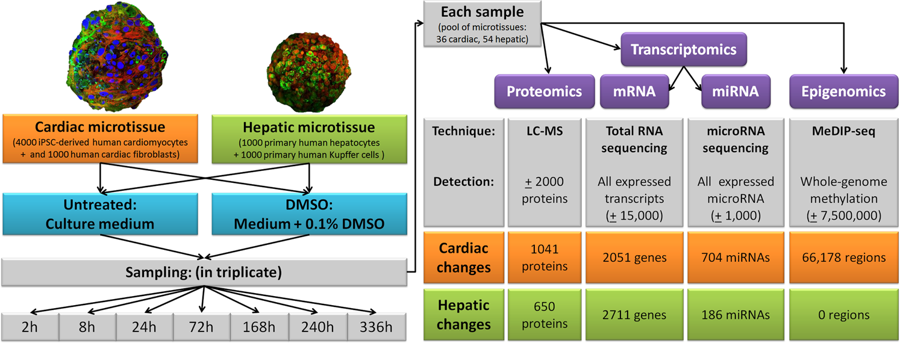DMSO induces drastic changes in human cellular processes and epigenetic landscape in vitro
Dimethyl sulfoxide (DMSO) is an organic solvent that is widely used as cryoprotectant for freezing cells and tissues. Clinically, DMSO is considered a potent anti-inflammatory, nerve blocker (analgesic), diuretic, vasodilator and muscle relaxer. In cells, DMSO is used to induce differentiation, as a free radical scavenger, and most notably, to prevent ice formation during cryopreservation. Solutions consisting of up to 10% DMSO are widely used for freezing cells. Despite its widespread use, DMSO has long been the subject of safety concerns. Though clinical trials first reported toxicity as early as the 1960s, the FDA eventually classified DMSO in the safest solvent category (3), thereby enabling its use in pharmaceutical applications. DMSO’s harmful biological effects were often overlooked because it was used in such low concentrations.
Recent research by M. Verheijen et al., (2019) reveals new findings regarding how DMSO impacts cell physiology by using more sensitive high-throughput techniques such as proteomics, transcriptome, and the epigenome. The researchers exposed 3D microtissues (a maturing iPSC-derived cardiac model and a mature hepatic model) to 0.1% DMSO in vitro and collected samples in triplicate at 7 different time points up to 2 weeks of aggregate exposure (Fig.1). Surprisingly, they found that DMSO induces large alterations in microRNA (miRNA) and the epigenetic landscape, especially in the maturing cardiac model. Changes in the methylation status after DMSO treatment might destabilize the genome, implying phenotypic and pathological consequences. Extreme changes in miRNA and alterations to the epigenetic landscape may pose a threat, especially for reproductive technology.

This study clearly reveals that DMSO is not an inert solvent. Even in “low” concentrations, DMSO was found to induce extreme changes in the epigenetic landscape. To read the full paper, please click here. While there is still a great deal to be learned through the use of advanced analytic techniques to study the effect of DMSO on cells and tissues, it is clear from these results that the field needs to re-evaluate the central role that DMSO has long occupied in the cryopreservation arena. In the meantime, the cryopreservation field is shifting steadily towards DMSO-free solutions that achieve the similar results while minimizing toxicity and changes to the epigenetic landscape. Akron has long focused on the development and commercialization of non-DMSO-based, bioinspired cryoprotectants. Learn more about how our solutions can enable the safe and effective preservation of your cells and tissues.